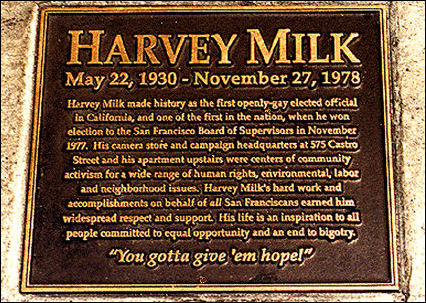24 years after the release of Rob Epstein‘s The Times of Harvey Milk, one of the most touching documentaries ever made, and more than a year after Brokeback Mountain awoke Hollywood to the idea that well-crafted tragedies about gay men running into destructive forces can melt the hearts of Average Joes, a race has suddenly kicked in between two projects and two big-name directors — Bryan Singer and Gus Van Sant — to make a dramatic feature about assassinated San Francisco supervisor Harvey Milk.


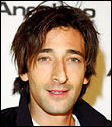
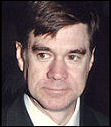
(l. to r.) Bryan Singer, Harvey Milk, Adrien Brody, Gus Van Sant
My first thought as I read Michael Fleming‘s Variety story was, “Good…about time.” But my second thought was, “For Chrissake…”
Why do these competing-project wars always happen? What kept producers Neil Meron and Craig Zadan from launching The Mayor of Castro Street, which Singer is intending to direct starting sometime in early to mid 2008 with Chris McQuarrie having rewritten a script by Brandon Boyce, a year or 18 months ago, when Brokeback heat was being felt everywhere?
Why is Van Sant, who was once going to direct Castro Street and even wrote a draft of the script years ago, only now attaching himself to an untitled Milk script by Dustin Lance Black? Why not a year or two years ago?
Which director is going to sign Adrien Brody, a dead-ringer for Milk and probably the best choice for the role box-office-wise, and which will sign Hank Azaria, another first-rate thesp with a resemblance factor in his favor?
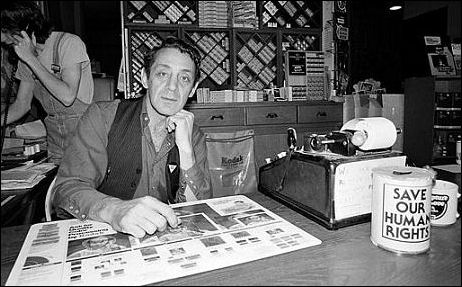
And why doesn’t Fleming provide at least a hint about which project is most likely to be made and seen first? Allow me to offer my own analysis. The Singer/ McQuarrie project has the heat and history (The Mayor of Castro Street has been in development for 15 years, with Oliver Stone wanting to make it eons ago with, as I recall, Robin Williams in the lead role) and Warner Independent money behind it. But it seems to me that the race is Van Sant’s to lose.
Singer is going to be shooting Valkyrie, his United Artists/World War II/Tom Cruise movie, starting in July and will be tied up until at least early ’08 and probably into the spring…right? So despite Zadan’s saying to Fleming that Warner Independent “is pushing us to get the film made right away,” it’s looking more like nine or ten months from now, at best.
This situation seems to give an advantage to Van Sant, who isn’t doing a World War II movie with Tom Cruise and is not, as far as I can tell, planning to shoot another film this summer. He therefore has the next few months to refine and finalize the Black script and get it cast and financed in order to start shooting in the fall, and then get it into the Toronto Film Festival by September ’08. And possibly into theatres by the end of the year.
Under the best of circumstances, could Singer’s Milk project hope to be finished and seen before the summer of ’09?
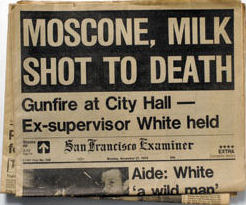
In fact, I’m thinking that the smarter plan for Van Sant would be to avoid the straight-biopic route and shoot his Milk movie in the style of Elephant or Last Days. I see a film covering the last two of three days of Milk’s life as psycho fireman and ex-supervisor Dan White frets and freaks over having resigned and finally deciding to sneak into City Hall and shoot Milk and San Francisco Mayor George Moscone. And then fast-forward to the White murder trial and the twinkie defense and the reduced sentence that resulted, and the outrage that came from that.
It will obviously matter a great deal if Van Sant and Singer manage to make first-rate films about Milk, but what will matter the most is which film is seen and released first.
As Fleming writes, “The fates of Capote and Infamous have demonstrated how important it is to be first in the marketplace when it comes to rival fact-based pictures. Capote came first and became an awards season darling highlighted by an Oscar win for Philip Seymour Hoffman; Infamous followed a year later, and, despite good reviews, a dead-on Capote perf by Toby Jones and the presence of Daniel Craig and Sandra Bullock, barely got noticed.”
In fact, Infamous wasn’t a very good film; it certainly wasn’t on the level of Capote. And the resemblance factor aside, Jones’ performance simply wasn’t as touching or classy as Hoffman…sorry. This fact plus people being reluctant to revisit the exact same material a year later is what killed Doug McGrath‘s film.
